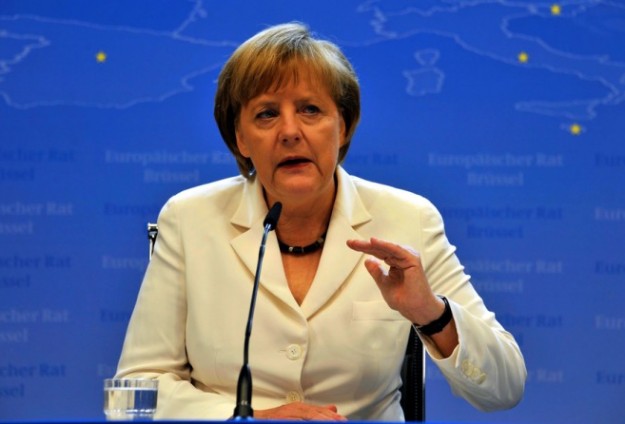Social Democrats have signaled willingness to make compromise on increasing tax rates, but demanded introducing a blanket minimum wage. Merkel’s CDU said an agreement can be reached.
 Chancellor Angela Merkel’s CDU and their potential coalition partner Social Democrats have signaled on Monday willingness to make compromise for forming a “grand coalition”.
Chancellor Angela Merkel’s CDU and their potential coalition partner Social Democrats have signaled on Monday willingness to make compromise for forming a “grand coalition”.
Andrea Nahles, Secretary General of the Social Democratic Party (SPD) told journalists on Monday that their key demand for increasing tax rates for the wealthy “has never been an end in itself.” If the CDU/CSU will continue to be against increasing tax rates, and then they have to show how to finance the need for investments in infrastructure, Nahles stressed.
Merkel’s CDU/CSU alliance and the Social Democrats are expected to hold their next round of preliminary talks on October 14. During the last two weeks, the main bone of contention between the two biggest parties in parliament had been SPD’s election promise of increasing tax rates for the wealthy.
– New focus is on minimum wage
While the SPD has recently signaled compromise on increasing tax rate for the wealthy, it has raised the demand for introducing a blanket minimum wage. SPD leader Sigmar Gabriel told WDR television that a nationwide minimum wage should be the precondition for a coalition with the CDU/CSU. “Without minimum wage, there is no coalition,” he stressed.
Merkel’s CDU signaled readiness to discuss SPD’s demand on minimum wage.
Hermann Groehe, the general secretary of the CDU told RBB-Inforadio on Monday that they are for “fair pay” for all workers and they are open for further discussions with the SPD on this topic.
In Germany, minimum wages exist only in some sectors, but there is no nationwide, blanket minimum wage. Merkel’s former coalition partner, the liberal FDP, had opposed to a minimum wage.
Merkel’s conservatives and the Social Democrats are expected to meet next Monday for another round of preliminary talks. SPD’s Andrea Nahles told journalists that she expects this round of talks on October 14 to be the “decisive” one.
– SPD to gather its mini convention
Social democrats have already started preparations for gathering their mini party convention on October 20. If the preliminary talks with Merkel’s conservatives would bridge major differences, then the SPD’s mini part convention will decide whether or not to move forward with “formal coalition negotiations” with the CDU/CSU alliance.
SPD’s Nahles told journalists that the party’s mini convention will gather in any case, independent from the outcome of the talks on October 14.
If Merkel’s CDU/CSU alliance and Social Democrats will reach a common ground and start formal negotiations, any ultimate coalition agreement will still have to be approved by the 470 thousand members of the SPD in a mini-referendum.
A recent poll by Forsa revealed that the 65 percent of SPD members were against a coalition with the CDU/CSU alliance.
Some Social Democrats fear from a repeat of the “grand coalition” experience of the 2005-2009. Social Democrats faced their historic defeat in 2009 general elections and many blamed the coalition with the CDU/CSU for this fiasco.
Anatolia News Agency















